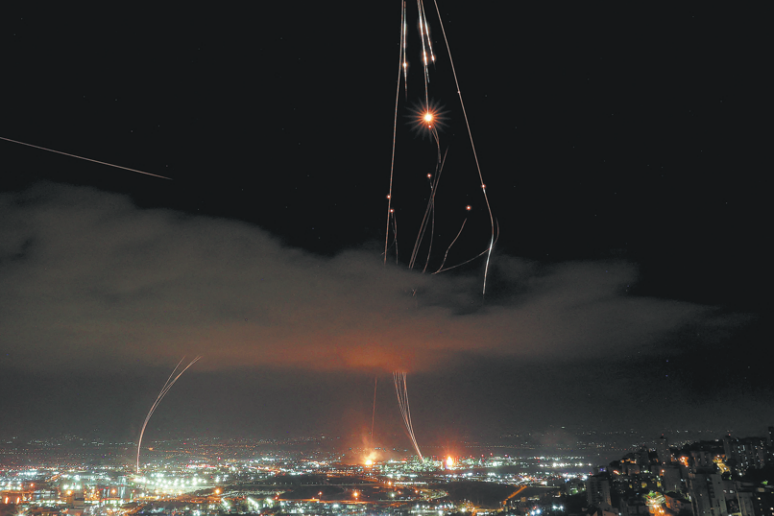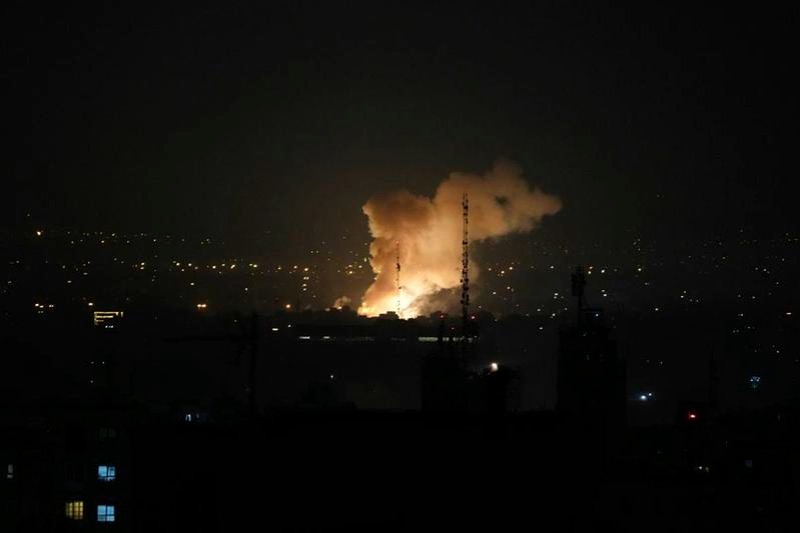Israeli strikes on Iran slammed as unlawful
Attacks aimed at relieving domestic, intl pressure on Netanyahu: Experts


Israel's "preemptive" strikes on Iran violate key principles of international law, and the deliberate targeting of nuclear scientists covered by humanitarian law could amount to unlawful killing, experts said.
They added that Israeli Prime Minister Benjamin Netanyahu's reasons for striking Iran were aimed at relieving growing domestic and international pressure over his prolonged military campaign and aid blockade in Gaza, rather than his country's self-defense.
Ahmad Ghouri, an associate professor at the School of Law, Politics and Sociology at the University of Sussex in the United Kingdom, told China Daily that Israel's preemptive strikes on Iran breached Article 2(4) of the United Nations Charter.
The relevant charter prohibits the use of force against the territorial integrity or political independence of any state, or in any other manner inconsistent with the purposes of the UN.
Israel launched a "preemptive strike" on Iran on Friday, the Israel Defense Forces confirmed in a statement.
"Today, Iran is closer than ever to obtaining a nuclear weapon. Weapons of mass destruction in the hands of the Iranian regime are an existential threat to the State of Israel and a significant threat to the wider world," the IDF said in a statement.
The Chief Commander of Iran's Islamic Revolution Guards Corps Hossein Salami and Gholam-Ali Rashid, commander of Iran's Khatam al-Anbiya Central Headquarters, were killed in Friday's airstrikes.
The casualties also included two Iranian nuclear scientists, Xinhua News Agency reported.
"From this perspective, Israel's military actions — including attacks on Iranian nuclear facilities and the targeted killing of nuclear scientists — constitute an unlawful use of force," said Ghouri, who is also senior counsel at Albertson Solicitors in London.
'Perceived threats'
"Furthermore, Article 51 of the UN Charter permits self-defense only in response to an actual armed attack. It does not support the use of force based solely on perceived or potential threats.
"Therefore, Israel's justification of anticipatory self-defense does not meet the legal threshold required under Article 51," he added.
Under Article 51 of the UN Charter, nothing shall impair the inherent right of individual or collective self-defense if an armed attack occurs against a UN member, until the Security Council has taken measures necessary to maintain international peace and security.
Ghouri said that although the Caroline doctrine allows anticipatory self-defense when the threat is instant, overwhelming, and leaves no choice of means or moment for deliberation, Israel's actions do not satisfy the stringent criteria.
The threat from Iran was not immediate, and diplomatic avenues had not been exhausted, he said.
Ghouri said the targeting of nuclear scientists was also illegal, as such individuals are civilians under international humanitarian law unless they directly participate in hostilities. Their deliberate targeting, he said, could thus amount to "unlawful killing".
Two major events — the sixth round of nuclear negotiations supposedly scheduled to take place in Oman on the weekend, and a UN conference on reviving the two-state solution for Israel and Palestinians set from Tuesday to Friday — were postponed following the strikes.
Abdalfatah Asqool, a former international law lecturer at the University of Palestine in the Gaza Strip, said "no single instrument" in international law justifies Israel's attacks on Iran.
Asqool told China Daily it was "ridiculous and meaningless to use the self-defense justification for these attacks" and that the countries rushing to defend Israel and its actions are "partners in violating the obvious basic rules of international law".
He said this was another example of the "double standards" adopted by several countries.
"I think one of Netanyahu's reasons to attack Iran is to escape the pressure on him because of the humanitarian crisis he caused in the Gaza Strip. And our families are still starving, so we need to keep reminding the world about them," he added.
































